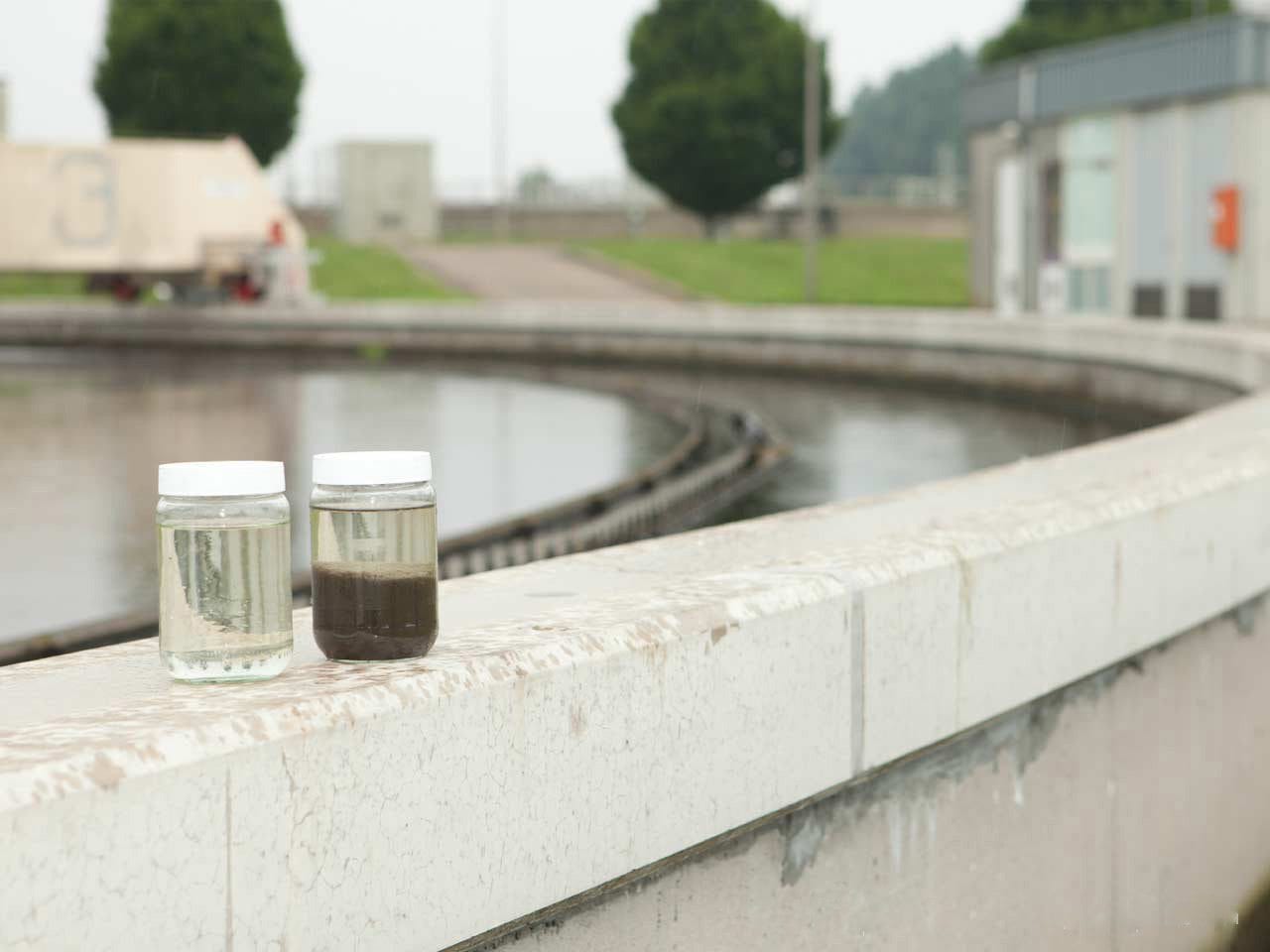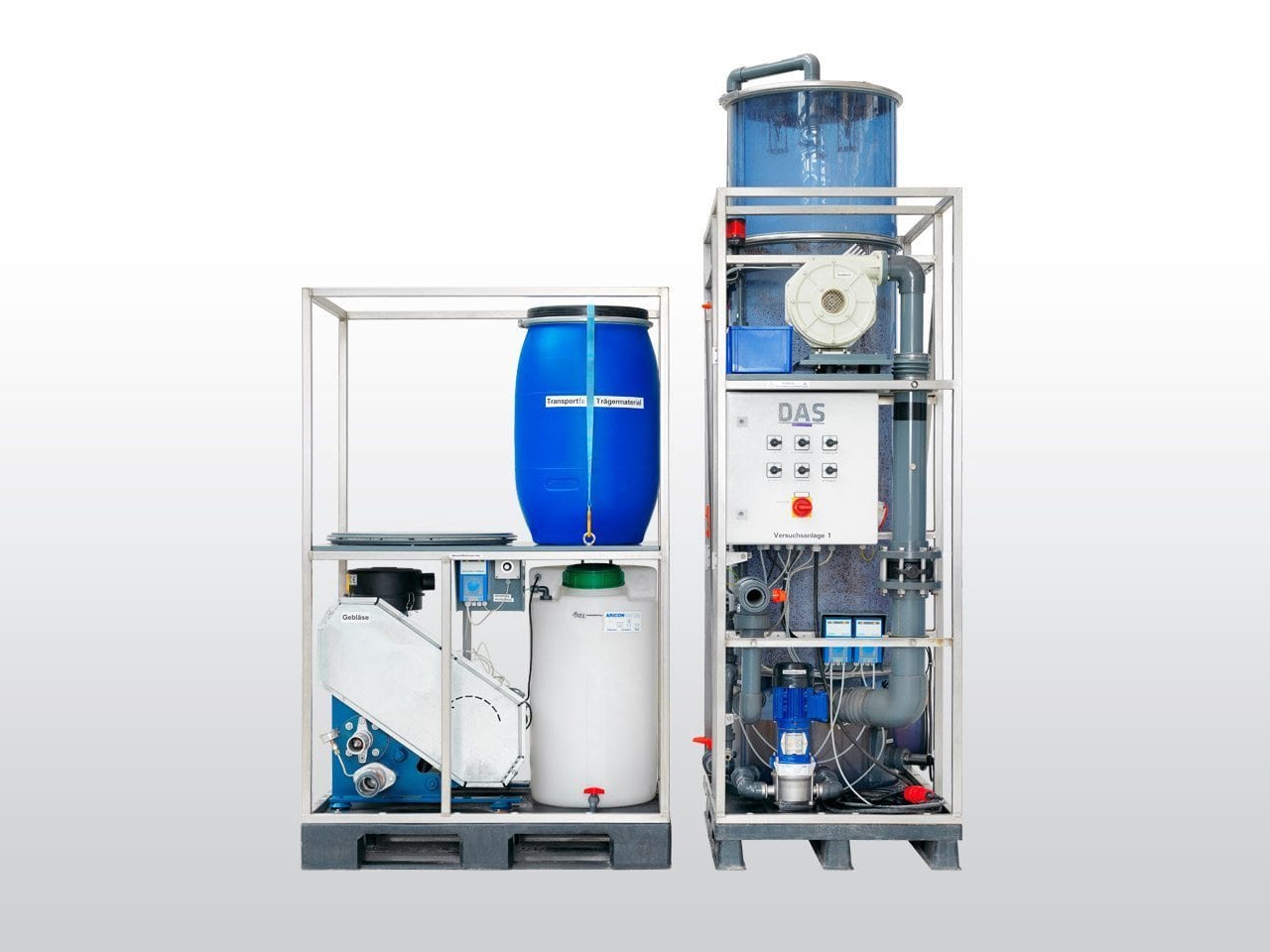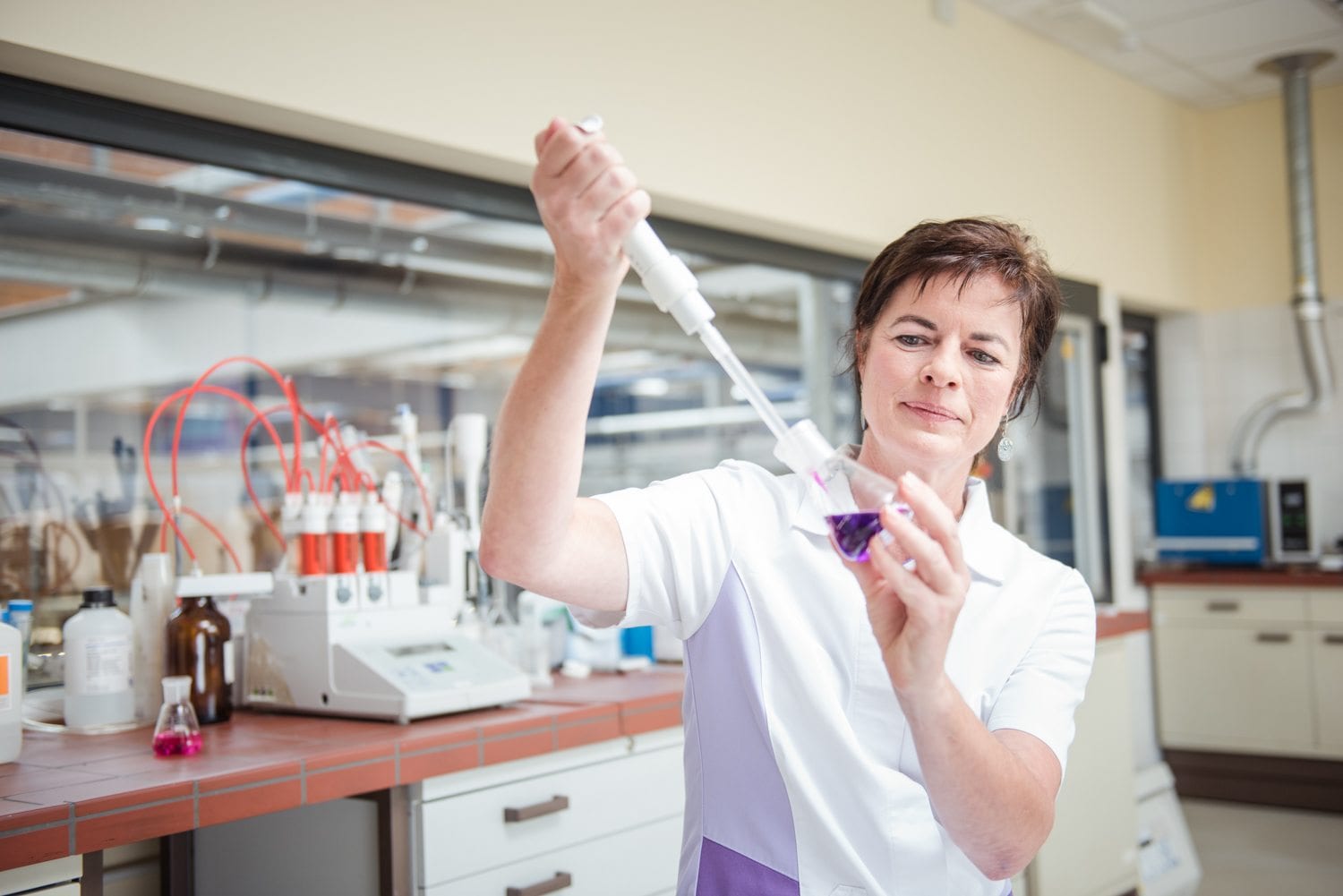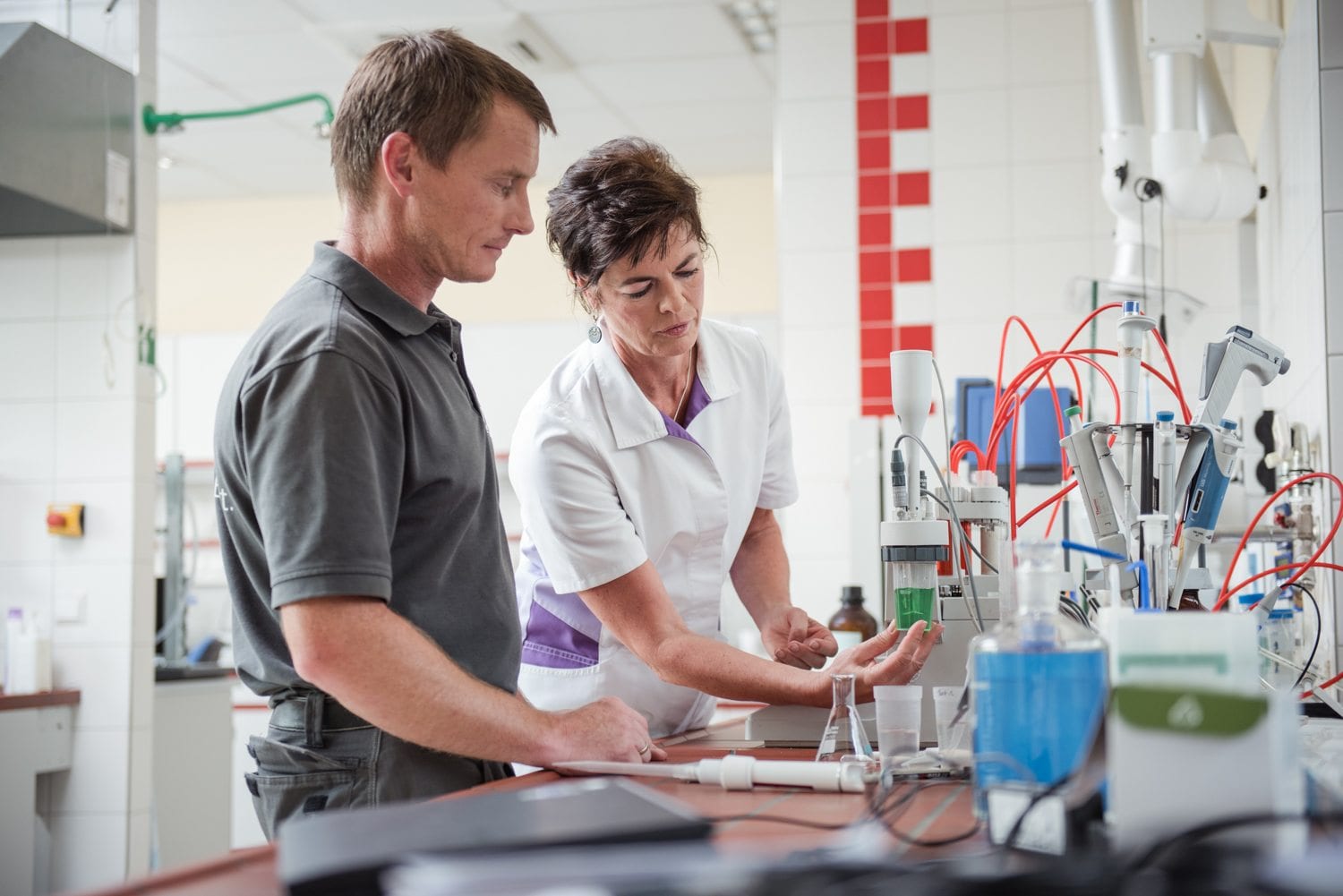Environmental and Wastewater Analysis for Industrial Applications
The wastewater that DAS Environmental Expert customers create are as individual and diverse as the products they produce. Therefore, our projects start with an on-site investigation and consultation at the customer’s facilities as well as sampling and laboratory analysis. This process is completed through test samples in the laboratory or the installation of an on-site pilot plant.
Our Portfolio for Wastewater Analysis
Planning new wastewater treatment plants or overhauling and optimizing existing systems requires a comprehensive analysis of the current wastewater. Basic data, such as wastewater volume per day, the temperature of the wastewater, and available space, determines the general design of a facility.
In addition, our laboratory experts assess the composition of the wastewater and its constituent substances. Using an individual checklist, we develop, together with the customer, an overview concerning specific parameters, such as the following.
Analysis of Important Wastewater Parameter:
- The Chemical and Biological Oxygen Demand (COD, BOD)
- Absorbable Organic Halogens (AOX)
- Polycyclic Aromatic Hydrocarbons (PAHs)
- Aromatic Hydrocarbons (Benzene, Toluene, Ethyl Benzene and Xylene (BTEX)
- The Nitrogen Content of Ammonium (NH4‑N)
- Nitrate Nitrogen (NO3‑N)
- Phosphorus Compounds (PO4‑P)
- Chlorides
- Heavy Metals
Chemical, Physical and Microbiological Laboratory Analysis of Wastewater
Wastewater Analysis
The wastewater analysis is the foundation for developing key data and developing a comprehensive wastewater treatment concept. Our service portfolio starts with the analysis of the wastewater either on site or in our laboratory. Furthermore, we conduct examinations in accordance with the self-control regulation, evaluate the analysis results, prepare technical reports and develop water and wastewater balance sheets. On this basis, we identify potentials for process optimization.

Your Advantages
- Direct linkage between the laboratory and the development-and-planning engineers
- Sound data for developing a customer-specific process concept
- Identification of optimization potentials
- Cost-saving through process optimization
- Commissioning, sampling and optimization from a single source

Wastewater Analysis Conducted in Our Laboratory
After on-site sampling, we conduct a basic analysis of the wastewater samples in our Dresden laboratory to determine their chemical composition. This enables us to develop processes on a laboratory scale.
We can perform the following testing methods for our clients:
- Activated carbon testing
- Ion-exchange testing
- Listing of breakthrough curves
- Biological degradation tests
- Precipitation and flocculation tests
- AOP tests (Advanced Oxidation Processes)
Wastewater Analysis via Pilot Plants
Based on the preceding laboratory analysis, and the results from the applied test procedures, the project design can begin. An alternative option is the conception of a pilot plant for a direct test run on site. Our pilot plants are completely prefabricated and allow for a fast analysis of even difficult-to-treat wastewaters.
The application of pilot plants saves you both investment and later costs, and you can convince yourself of our service even before you place your order.
A pilot plant offers the following advantages
- Easy transport and fast installation
- Minimal space requirements
- Optimal dimensioning of the required large-scale plant known prior to investment
- Transparent verification of the performance of the wastewater treatment and process combination prior to investment
- Determination of long-term operating costs
- Recording of the chemical requirements and energy demand
- Optimal technical support through in-house technicians
- Professional assessment of the pilot plant through experienced engineering personnel and presentation of the technology
Using a pilot plant saves costs both in investment and long-term operation, which provides our clients confidence in our services prior to placing their order.

Process Optimization through Wastewater Technology
Increase in wastewater volume, fluctuations in the wastewater concentration, changes in the effluent contents and/or changes within water permits often require the adaptation or supplementation of a client’s existing technology.
Our laboratory for wastewater treatment supports the client in optimizing previously implemented wastewater treatment technology. The notion of “green” chemistry is central to our service. For us, this means increasing energy efficiency, reducing environmental impact, applying analytical methods to the monitoring of environmental pollution, and supporting safe processes.

With our team of experienced environmental experts, DAS Environmental Expert accompanies clients in the analysis and optimization of their processes. We examine pre-existing wastewater technology efficiency to design an effective split-stream treatment or complete treatment to allow for the direct and indirect discharge. Our portfolio covers (among others) the following methods:
Biological Water Treatment
- Degradation of the Organic Load
- Nitrification (Oxidation of Ammoniac or Ammonium Ions to Nitrate)
- De-Nitrification (Reduction of Nitrate to elementary Nitrogen)
Chemical-Physical Water Treatment
- Precipitation/Flocculation
- Separation of Contaminants
- Activated Carbon Treatment
- AOP Processes (Advanced Oxidation Processes)
We support projects such as the expansion and/or restructuring of an existing plant, and the reprogramming of the plant control system or options for water treatment for multiple usage through our well-founded analyses, thus making a significant contribution to operational and planning security.
Supplementing Wastewater Analysis through Feasibility Studies
Within the scope of feasibility studies, DAS Environmental Expert specialists examine various approaches for their technical suitability as well as their economic efficiency. This in-depth analysis of project concepts and early identification of risks ensure increased planning security.
Feasibility studies can be an integral part of comprehensive planning as well as a separate project. They are also suitable for obtaining a second opinion when offered possible solutions.
